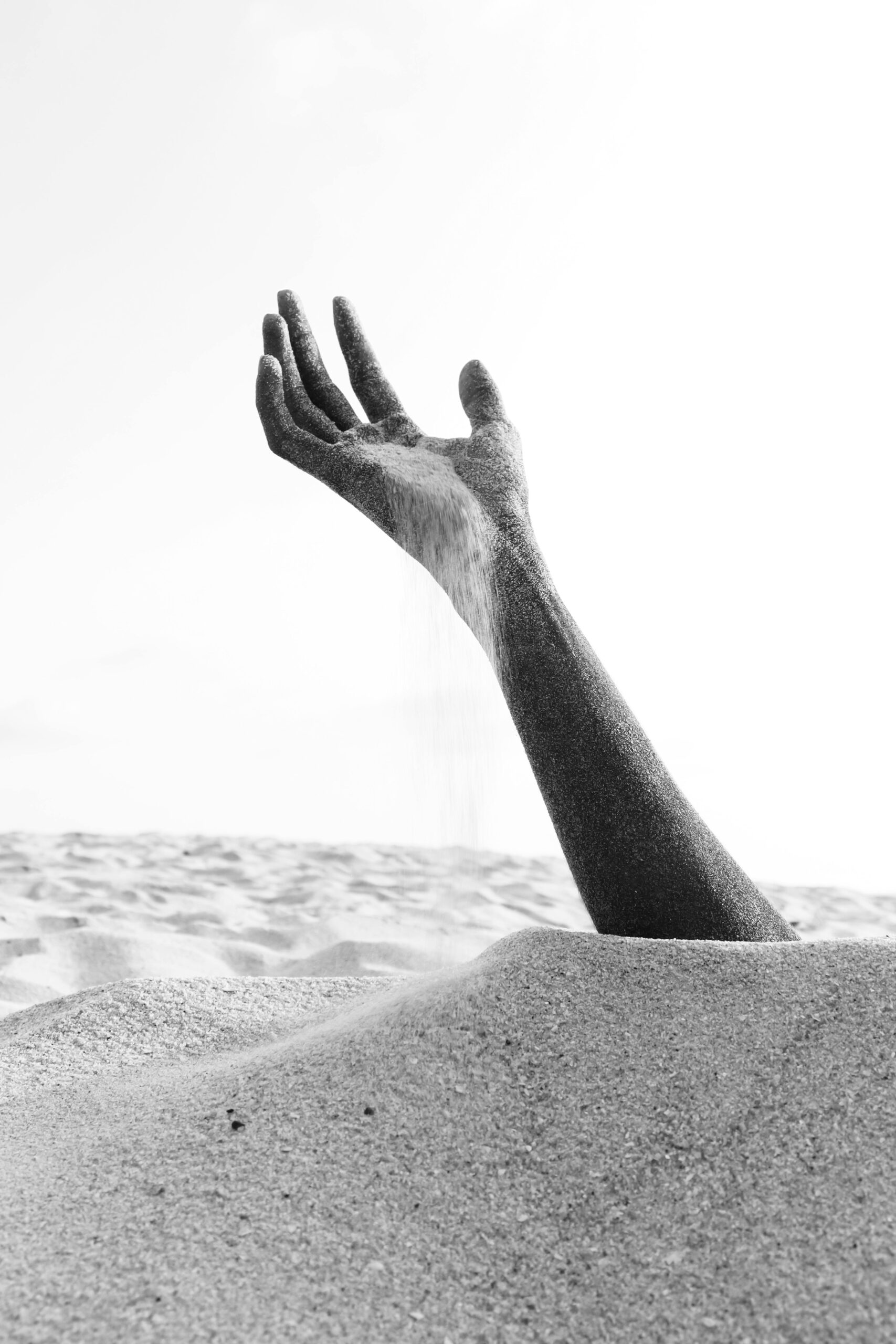Anxiety

CURRENTLY LISTENING TO
“Exit Signs” Noah Gunderson
I’ve wrestled with anxiety my entire life. As the oldest of five, I have often felt the weight of responsibility on my shoulders, a weight that grew heavier with each move and transition through my childhood. We moved a lot when I was a kid. With each new school, each new set of friends, and each new sports team, I found myself craving certainty, a clear roadmap of what was to come. This need for control manifested in the smallest of ways, including over-packing for trips with a surplus of t-shirts, pants, and shoes, prepared for every possible scenario.
The intensity of my anxiety became even more clear to me when I was 20 sitting at the kitchen table with my mom. As we looked over my finances, the reality of student loans and credit card debt became overwhelming. Tears streamed down my face as I grappled with the enormity of my financial burden and the uncertainty of my future. The reality of debt was not unfamiliar in my family, but the fear that I was destined to follow the same path was suffocating. With a communications degree in progress and no clear career trajectory, I was haunted by visions of a life spent working at a fast-food restaurant, not out of choice, but necessity.
This encounter with my financial reality triggered constant anxiety around money that lingers to this day. However, my anxious thoughts are not restricted to finances alone; they are everywhere in my life. Questions such as “Will this work out?” “Will I be successful?” “Will I die?” “Do they like me?” “Are they angry with me?” “Am I competent?” “Am I going to get fired?” incessantly race through my mind.
Over time, however, I have realized: my fears have never played out exactly how I imagine.
While life has not always unfolded perfectly, the outcomes have never been as catastrophic as my imagination led me to believe. Yet, for years, my brain has perpetuated the lie that my incessant planning and worrying were the only things keeping the worst case scenario from coming true. It convinced me that without my anxious worry, my worst fears would inevitably come to pass. I have since learned that this is simply not true; in fact, anxiety only makes it worse.
Anxiety, as a survival instinct, causes me to miss out on the present moment. It makes me tense, unfocused, and prone to mistakes. In a state of fear, my ability to perform at my best is compromised, my attention scattered, and my creativity stifled by the looming potential of failure.
The impact of anxiety is nowhere more evident than in my relationship with rock climbing, an activity I still both love and hate. The fear of falling and breaking my leg, of cutting my rope, or of a belayer’s mistake, often paralyzes me mid-climb. I become immobilized, too frightened to go up or down, my mind racing with countless “what ifs.” In the past, this would result in a small but terrifying fall, followed by being lowered by my partner and the rest of the day spent in an angry self-loathing.
The question then arises: how does one cope with this cycle of anxiety? There are lots of ways that provide momentary relief. Taking a nap, eating a honey bun, smoking weed, ordering something on amazon, scrolling instagram, dm’ing a girl, watching a game, looking at a new truck online, porn, hitting your vape, the list goes on and on full of numbing behaviors. While these may provide a fleeting respite, they ultimately leave you right back where you started: anxious and stuck.
The coping mechanisms we turn to in an attempt to manage our anxiety are often forms of escapism. While these activities may provide temporary relief, they do not address the underlying issues. In some cases, they can lead to additional problems, such as harmful drug use or financial difficulties, further compounding the anxiety.
The realization that anxiety can distort reality was a significant breakthrough for me. It can be a liberating insight to understand that the catastrophic outcomes we imagine rarely come to pass. This recognition can be the first step in developing healthier coping strategies. By acknowledging that anxiety is often based on irrational fears, we can begin to challenge and reframe our thought patterns.
Today, my approach to managing anxiety is markedly different and refreshingly simple. It begins with grounding myself in the present moment. I recognize that my mind has commandeered control, leaving my body to merely tag along. My goal is to deflate the ballooning anxiety and align it with my physical presence. I engage my senses, taking note of the chair’s support, the temperature on my skin, the texture of the couch, the sights of the room I’m in, the sounds, and smell. By focusing on these sensory experiences, I anchor myself back to reality, reminding myself of my humanity and agency.
Deep, intentional breathing further aids in calming my nervous system, allowing me to operate from a place of clarity. With each breath, I massage my vagus nerve, creating a sense of calm and focus. This process equips me to move forward, not driven by fear and anxiety, but with my entire being engaged and my creativity intact.
Ultimately, the journey through anxiety is a personal one. What works for one person may not work for another. It is a process of trial and error, of finding what resonates and what brings relief. It is also a process of self-discovery, of learning to trust yourself and your ability to cope with whatever challenges arise.
Building this trust is not an overnight endeavor. It requires patience, perseverance, and, above all, compassion for yourself. It involves celebrating small victories and learning from setbacks. It is about understanding that anxiety does not define you, but is simply a part of your experience.
The path forward is clear: operating from a place of anxiety is counterproductive. It does not provide protection nor does it help in achieving your goals. When you successfully navigate life from a place of clarity, and your deepest fears do not come to fruition, you can reinforce the understanding that your anxiety is just that—anxiety. The situations you encounter will never unfold as catastrophically as your mind can conjure.
Developing a deep trust in yourself is essential. Although the exact outcomes are unknown, you can trust that things will work out and you have the resilience to manage whatever comes your way. Your spirit is robust, and you are strong. You will be okay.
As you navigate your way through anxiety, you can begin to see it not as a barrier, but as a teacher. It can teach you about our strengths and your vulnerabilities. It can lead you to develop greater empathy for others who struggle with similar issues. And it can inspire you to reach out for support when you need it and to offer that support in return.
In the end, the goal is not to eradicate anxiety completely, but to learn how to live with it in a way that does not limit your life. It is about finding balance, embracing uncertainty, and moving forward with courage and confidence. Onward.
close X
“I started working with Addison and at a time when I felt pretty anxious and helpless. Since working with him, I’ve been rebuilding myself from the ground up. I feel completely different now than I did prior to working with him. One of my favorite things about working with Addison was the challenges he’d give me to tackle during the week. These were mostly small and simple challenges, but they served as building blocks that really gave me momentum to help put myself back together.”
